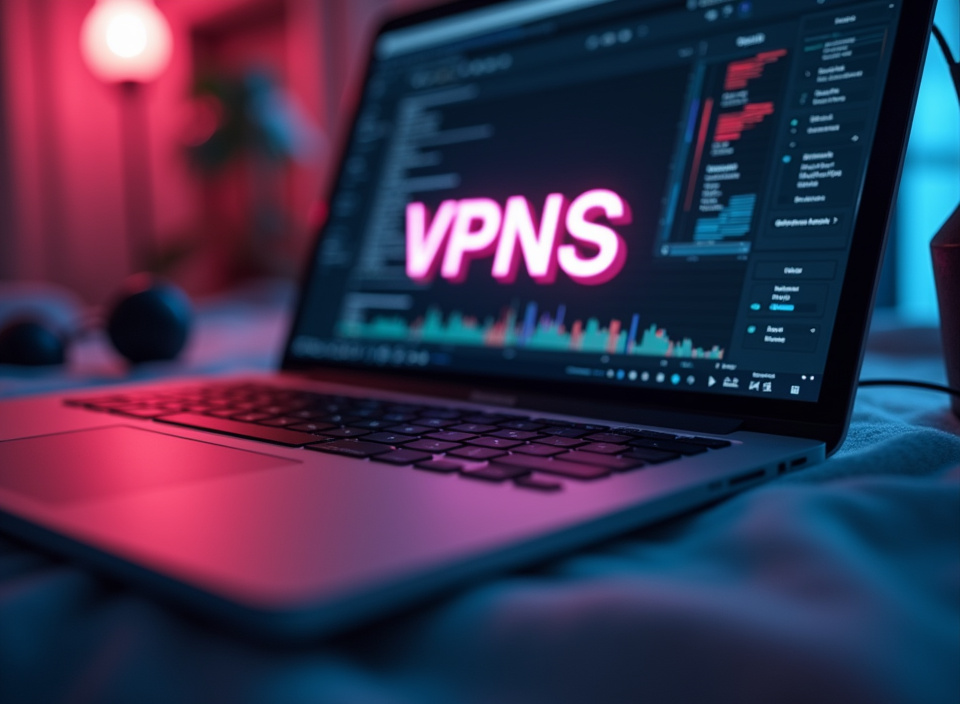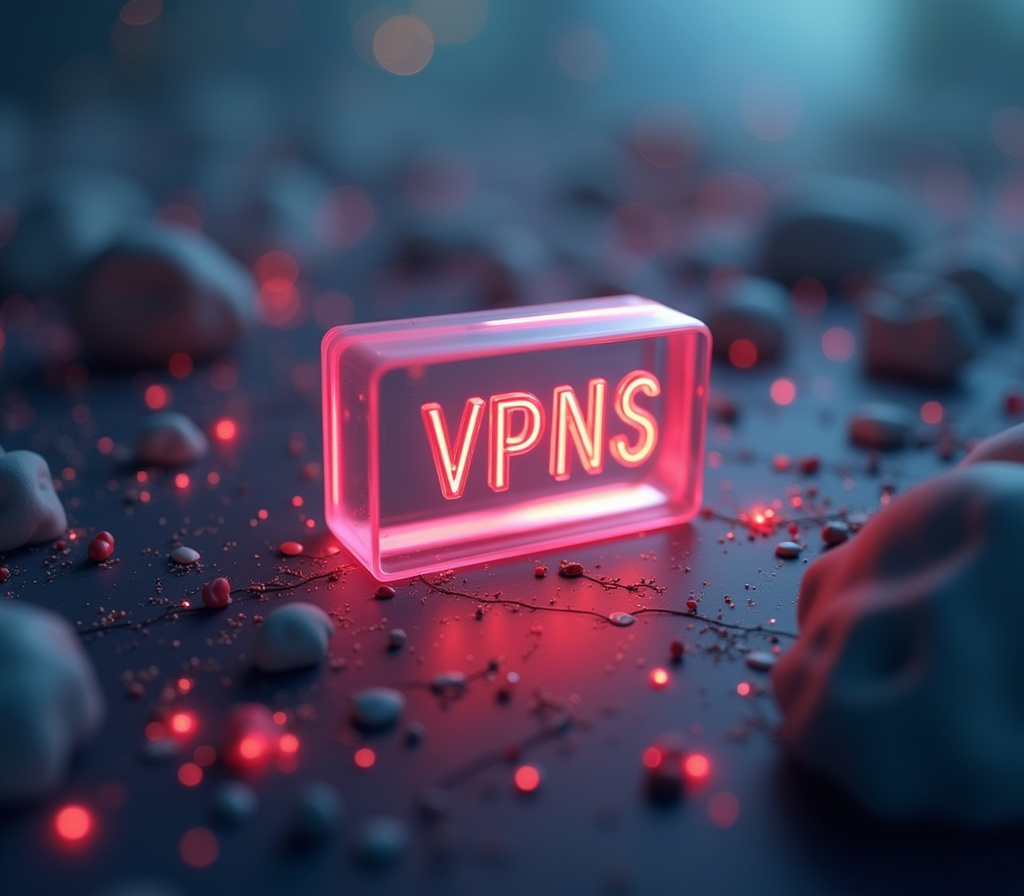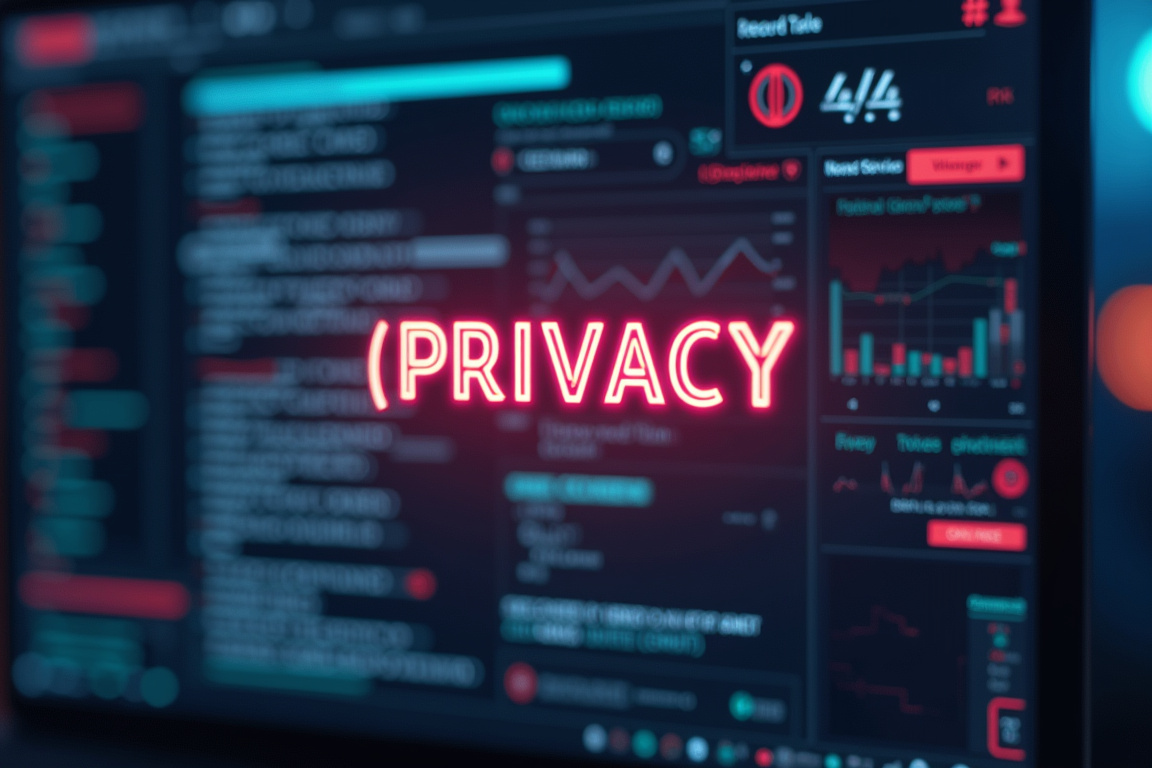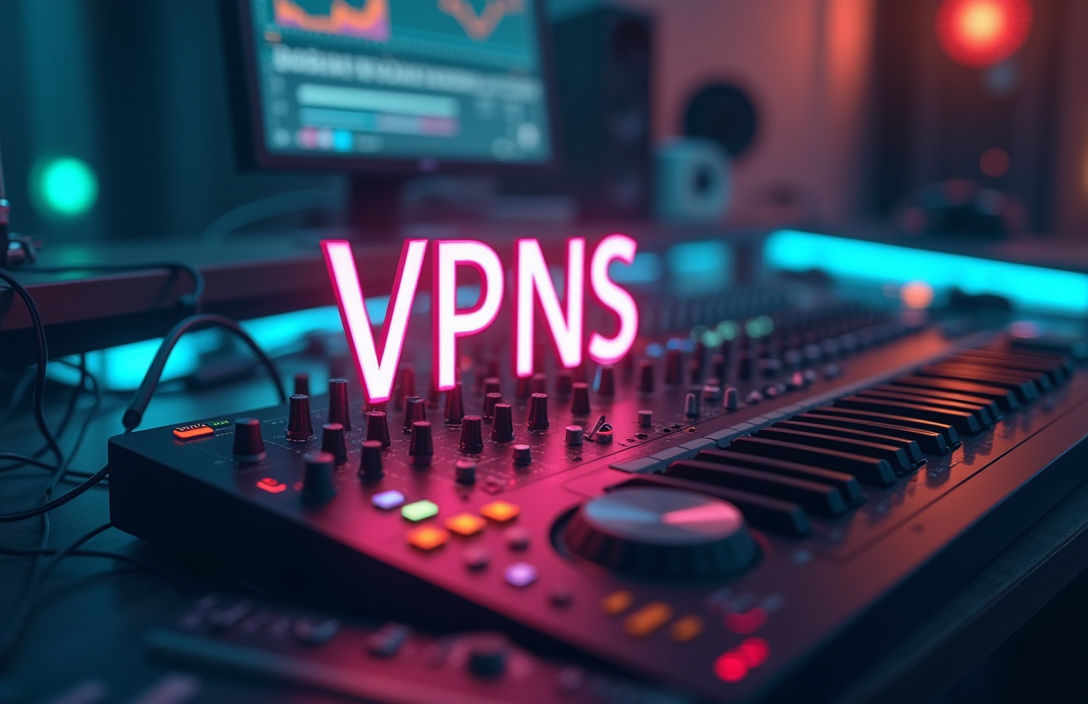VPNs for Music Streaming Services: Protecting Listener Data
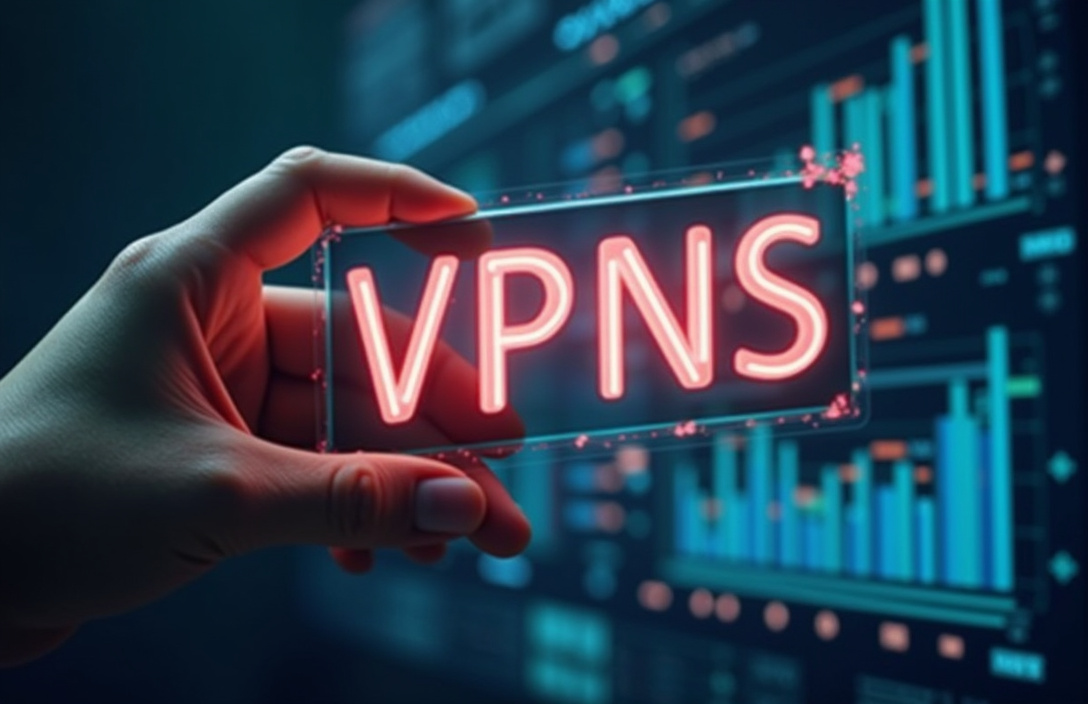
Table of Contents
VPNs for Music Streaming Services: Protecting Listener Data
In the burgeoning landscape of digital music consumption, streaming services have revolutionized how we access and experience music. Platforms like Spotify, Apple Music, and Tidal offer vast libraries at our fingertips, personalized recommendations, and seamless access across devices. However, this convenience comes at a cost: the collection and analysis of listener data.
These services meticulously track our listening habits, preferences, demographics, and even the devices we use to engage with their content. While this data collection powers personalized recommendations and targeted marketing, it also raises significant concerns about privacy and security. This article delves into the critical role Virtual Private Networks (VPNs) play in safeguarding listener data and ensuring a more secure and private music streaming experience.
We'll explore how VPNs work to protect sensitive information, mitigate the risks associated with data collection, and enhance user autonomy in the digital music ecosystem. We'll also address the limitations of VPNs and offer practical advice for choosing a service that balances security, performance, and usability, ensuring you can enjoy your music without compromising your privacy. Ultimately, this exploration aims to empower listeners to make informed decisions about their data security and navigate the complex world of music streaming with greater awareness and control.
The proliferation of music streaming services has led to an unprecedented level of data collection. These platforms track everything from the songs we listen to and the time of day we listen to them, to our geographic location and the devices we use. This data is then aggregated and analyzed to create detailed profiles of individual listeners, which are used for a variety of purposes, including personalized recommendations, targeted advertising, and content optimization.
While personalized recommendations can enhance the user experience by suggesting new music that aligns with individual tastes, they also raise concerns about the potential for manipulation and the creation of echo chambers. Targeted advertising, based on listening habits, can be intrusive and exploitative, potentially leading to price discrimination and other forms of unfair treatment. Furthermore, the collection and storage of listener data can create vulnerabilities to data breaches and unauthorized access.
In the event of a breach, sensitive information, such as listening history and personal details, could be exposed to malicious actors, leading to identity theft, financial fraud, and reputational damage. The risks associated with the collection and analysis of listener data extend beyond individual privacy concerns to broader societal implications. The aggregation of listener data can be used to monitor and control access to information, potentially leading to censorship and the suppression of dissenting voices.
In some regions, governments may use data collected by music streaming services to track and target individuals based on their musical preferences, chilling freedom of expression and limiting access to diverse perspectives. To mitigate these risks and protect listener data, VPNs offer a powerful solution. A VPN encrypts internet traffic and masks IP addresses, creating a secure and private connection between the listener's device and the music streaming service.
This prevents internet service providers (ISPs), government agencies, and other third parties from monitoring online activity and collecting sensitive information. By routing data through a VPN server located in a different region, listeners can also bypass geo-restrictions and access music content that may not be available in their home country. This can be particularly useful for accessing exclusive content, discovering new artists, and supporting musicians from around the world.
This is where the becomes a pivotal tool for concerned listeners.
listener data security
The protection of is paramount in the digital music ecosystem, and VPNs provide a multi-layered approach to achieving this goal. At the core of VPN functionality is encryption, a process that transforms data into an unreadable format, preventing unauthorized access. When a listener connects to a music streaming service through a VPN, all data transmitted between their device and the VPN server is encrypted, making it virtually impossible for third parties to intercept and decipher the information.
This includes sensitive details such as login credentials, payment information, and listening habits. In addition to encryption, VPNs also mask the user's IP address, which is a unique identifier assigned to their device by their internet service provider (ISP). By routing internet traffic through a VPN server, the listener's actual IP address is hidden, and replaced with the IP address of the VPN server.
This effectively anonymizes the listener's online activity, making it difficult to track their location or identify them personally. This masking also circumvents geographical restrictions, allowing users to access content not available in their region. The combination of encryption and IP address masking provides a robust layer of protection against surveillance and data collection.
Even if a third party were to intercept the data transmitted between the listener's device and the music streaming service, they would not be able to decipher the encrypted information or identify the listener based on their IP address. However, it is important to choose a reputable to properly protect yourself. Beyond the technical aspects of encryption and IP address masking, VPNs also empower listeners to take control of their online privacy.
By choosing to use a VPN, listeners are asserting their right to privacy and actively taking steps to protect their personal information from being exploited. This can have a profound impact on their overall sense of digital autonomy and security. The use of VPNs also helps to raise awareness about the importance of data privacy and encourage music streaming services to adopt more privacy-friendly practices.
As more listeners demand greater control over their data, streaming services will be incentivized to implement stronger security measures and provide greater transparency about their data collection practices. In addition to protecting listener data, VPNs can also enhance the overall user experience by improving streaming performance. In some cases, ISPs may throttle bandwidth for certain types of traffic, including music streaming.
This can result in buffering, reduced audio quality, and other performance issues. By using a VPN, listeners can bypass ISP throttling and enjoy a smoother, more reliable streaming experience. It is very important that listeners choose carefully what they are going to use because not all VPNs are the same.
Many of them are untrust worthy and might be selling your data. It all comes down to finding a solid service that you trully trust. It's also good to note that most of the popular music streaming services are actively fighting against VPNs in order to control what the users can listen to based on their geolocation.
The use of VPNs for music streaming also contributes to a more open and inclusive digital environment. By enabling listeners to bypass geo-restrictions and access content from around the world, VPNs promote cultural exchange and understanding. This can lead to a greater appreciation of diverse musical traditions and a more vibrant and interconnected global music community.
streaming metrics protection
The significance of within the music industry is often underestimated, yet it plays a crucial role in ensuring fairness, transparency, and accurate representation of artist popularity. Streaming metrics, which include play counts, listener demographics, and engagement rates, serve as vital indicators for artists, labels, and streaming platforms to gauge the success and reach of music. These metrics inform critical business decisions, such as royalty payments, marketing strategies, and promotional campaigns.
However, the ease with which these metrics can be manipulated presents a significant challenge to the integrity of the entire ecosystem. One common method of manipulating streaming metrics involves the use of bots and fake accounts to artificially inflate play counts. This can create a false impression of popularity, leading to increased visibility and preferential treatment for artists who may not deserve it.
Furthermore, manipulated streaming metrics can distort royalty payments, diverting funds away from genuine artists and towards those who have engaged in fraudulent activities. The consequences of such manipulation extend beyond financial implications, impacting the overall credibility of the music industry. A perception that streaming metrics are unreliable can erode trust among artists, labels, and listeners, undermining the foundation of the digital music ecosystem.
The integrity of data is extremely important and every tool available to protect it must be used. VPNs offer a valuable tool for safeguarding streaming metrics by preventing and mitigating the impact of fraudulent activities. By masking IP addresses and encrypting internet traffic, VPNs make it considerably more difficult for malicious actors to deploy large-scale bot attacks aimed at inflating play counts.
This is because VPNs can circumvent IP-based restrictions implemented by streaming platforms to detect and block suspicious activity. With a VPN, botnets can be distributed across multiple IP addresses, making it harder to identify and shut down their fraudulent operations. In addition to thwarting bot attacks, VPNs can also help protect against click fraud and other deceptive practices used to manipulate streaming metrics.
For example, some individuals may employ click farms or automated scripts to repeatedly play certain songs, thereby artificially boosting their play counts. By routing their internet traffic through a VPN server, these individuals can conceal their location and prevent their IP addresses from being associated with the fraudulent activity. It’s important to note there is no way of ensuring a 100% accurate streaming report but it's possible to avoid gross manipulations.
Protecting streaming metrics requires a multifaceted approach that combines technological solutions with regulatory frameworks and industry best practices. Streaming platforms must invest in sophisticated fraud detection systems that can identify and flag suspicious activity patterns. These systems should incorporate machine learning algorithms that can analyze a wide range of data points, including IP addresses, listening patterns, and account demographics, to detect anomalies indicative of fraudulent behavior.
privacy
The concept of is intrinsically linked to the use of VPNs in the context of music streaming. In an era where personal data has become a valuable commodity, the ability to control and protect one's online activity is of paramount importance. Music streaming services, while offering convenience and access to a vast library of songs, collect a significant amount of data about their users.
This data can include listening habits, genre preferences, location information, and device details. While streaming services often claim that this data is used to personalize recommendations and improve the user experience, the potential for misuse and abuse is a legitimate concern. The data collected by music streaming services can be shared with third-party advertisers, data brokers, and even government agencies.
This data can then be used to target users with personalized ads, create detailed profiles for marketing purposes, or even monitor their online activity. In some cases, this data has been used to discriminate against individuals based on their musical tastes or political affiliations. The lack of transparency in how music streaming services collect, use, and share user data can raise serious ethical questions.
Many users are unaware of the extent to which their data is being tracked and the potential implications of this tracking. Without clear and concise privacy policies, users are unable to make informed decisions about whether or not to use these services. This lack of transparency can also erode trust in the music industry and make users hesitant to share their musical tastes with others.
Using is a great alternative nowadays, with the increasing cybercrime, you just never know when your data might be compromised. VPNs offer a solution to these privacy concerns by encrypting internet traffic and masking IP addresses. This prevents third-party trackers and data collectors from monitoring online activity and collecting sensitive information.
By routing traffic through a VPN server, users can effectively hide their location and prevent their musical tastes from being associated with their personal identity. The use of VPNs also allows users to bypass geographical restrictions and access content that may not be available in their region. This can be particularly useful for accessing music from different cultures and genres, expanding their musical horizons.
By providing a secure and private connection, VPNs empower users to take control of their online privacy and protect their personal information from being exploited. This can lead to a greater sense of security and autonomy in the digital music ecosystem. The benefits of using VPNs extend beyond individual privacy concerns and contribute to a more democratic and open music industry.
By protecting user data and promoting freedom of expression, VPNs help to ensure that the music industry remains a vibrant and diverse space for artists and creators. I strongly believe that implementing a VPN is a great way to avoid many issues with the privacy of your data. It allows me to view content that is restricted by a time zone limit like test scores is awesome.
As concerns about data privacy continue to grow, the role of VPNs in protecting user information and promoting online freedom will become increasingly important. Music streaming platforms must also prioritize transparency and user control, allowing users to make informed decisions about how their data is collected, used, and shared.
privacy
In conclusion, the convergence of music streaming services and VPN technology highlights a growing awareness of the need for robust online and data security. While music streaming offers unparalleled access to a world of music, the inherent data collection practices raise legitimate concerns about listener privacy and the potential for misuse of personal information. We've explored how listener data security, streaming metrics protection, and unrestricted access to content are all intertwined, and how VPNs serve as a critical tool in navigating this complex landscape.
Protecting sensitive information, such as listening habits and personal details, from being intercepted and exploited is of the utmost importance. The ensures that the information of users is private and no company or third-party can get a hold of that sensitive information. As long as you are careful with the VPN that you implement you can be safe from these kinds of issues, however, you must read and understand the privacy policy before applying it so you know what you are getting signed up on.
By encrypting internet traffic and masking IP addresses, VPNs empower listeners to enjoy music streaming services without fear of surveillance or data breaches. This not only safeguards individual privacy but also contributes to a more open and secure digital environment where freedom of expression and access to information are protected. Beyond data security, VPNs also play a crucial role in maintaining the integrity of streaming metrics.
By preventing the manipulation of play counts and other engagement metrics through the use of bots and fraudulent accounts, VPNs help to ensure a fairer and more transparent music industry. Streaming metrics protection ensures that the reports that the musicians receive is as accurate as possible, making them be able to make great financial decisions for their careers and for their business. Moreover, VPNs provide listeners with the ability to bypass geo-restrictions and access content that may not be available in their region.
This opens up a world of musical possibilities, allowing listeners to discover new artists, explore diverse genres, and support musicians from around the globe. Now with AI being on the uprising, the risks of your data getting sold and getting used for bad purposes is higher, make sure to take necessary measures. The final though on this article is to always protect your data no matter what and make the best measures possible for data .
Do not take anything lightly and protect youself with a , the cybercrime world is not a kids game and you have to make sure that your data stays secure. In the end of the day, your music data is a private thing of you, it's yours and you are the only one that must control it. Take the necessary measures and avoid having issues in the future that can be easily avoid.
Stay Updated
Get the latest VPN news, tips, and exclusive deals to your inbox.
